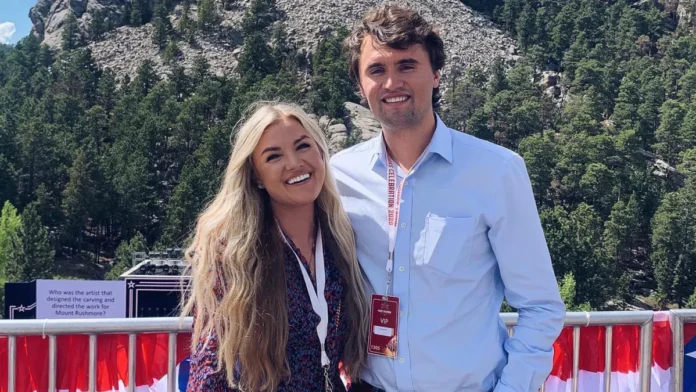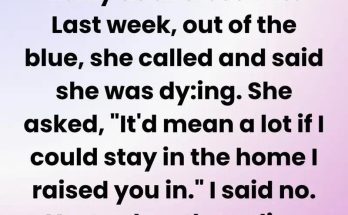Last Updated on September 15, 2025 by Grayson Elwood
Across the country, a growing number of Americans are being let go from their jobs — not because of poor performance or downsizing, but because of what they’ve said online.
In the wake of a widely publicized incident involving conservative figure Charlie Kirk, emotions ran high on social media. But for many individuals, expressing personal opinions online has now come with serious consequences.
From corporate offices to college campuses, a wave of terminations is unfolding as employers respond to controversial online posts related to the public reaction around Kirk’s passing. It’s a cautionary tale for anyone — especially older adults — trying to navigate this new digital era where even a single comment can have professional consequences.
Social Media Posts Spark Real-World Consequences
Charlie Kirk, a conservative commentator and founder of Turning Point USA, had long been a high-profile figure in political circles. Following a recent and tragic event at a university appearance, tributes poured in from political leaders across the spectrum. Messages of sympathy came not only from Donald and Melania Trump but also from former President Obama and Vice President Kamala Harris — a rare moment of bipartisan unity.
But while many expressed support and compassion, others took to social media to voice harsh criticisms — and that’s when things began to spiral.
A website titled Expose Charlie’s Critics quickly appeared, listing individuals who had posted controversial reactions online. Names, workplaces, and social media handles were shared publicly, leading employers to review the online behavior of their staff.
Professionals Across Industries Let Go After Online Activity
According to recent reports, dozens of people across industries — from media and education to tech and sports — have faced disciplinary action or outright dismissal for comments made in response to the incident.
One high-profile example includes political analyst Matthew Dowd. Dowd appeared on television discussing the broader environment in which such public tragedies take place. During his remarks, he described Kirk as a “divisive figure” and referenced his history of strong opinions.
MSNBC, Dowd’s employer, responded swiftly. A network spokesperson stated that his remarks were “insensitive and unaligned with our values.” Dowd, 64, was let go shortly after the segment aired.
Major Media and Entertainment Companies Respond
The ripple effects didn’t stop with political analysts.
DC Comics, a major player in the entertainment industry, canceled an upcoming series after one of its contracted writers, Gretchen Felker-Martin, made a post that appeared to celebrate Kirk’s passing. The company issued a formal statement saying that it holds all contributors to high standards, and that “any commentary perceived to encourage hostility” is not acceptable.
This trend is emerging as a major workplace issue: corporate social media policies are now being strictly enforced, and many employers are reviewing posts retroactively. Employees are discovering that even private opinions expressed on personal accounts can be interpreted as violating professional codes of conduct.
Universities and Sports Teams Join in the Crackdown
In Tennessee, a university staff member found herself without a job after making a post that criticized Kirk in the days following the incident. The university president called the statement “damaging to the institution’s values and credibility” and confirmed that the staffer had been removed from her position.
The sports world wasn’t immune, either. A communications staffer for the Carolina Panthers was reportedly let go after posting online commentary about the public response to Kirk’s passing. The Panthers released a statement reiterating their commitment to a “culture of respect and professionalism.”
Even large financial institutions have gotten involved. Nasdaq, one of the most influential names in global markets, confirmed that it had dismissed a junior employee for violating its social media policy. The company emphasized its stance on professional behavior, stating it has “zero tolerance for comments that appear to condone hostility in any form.”
Online Comments Now a Professional Risk
This wave of terminations has reignited a national conversation — especially among older Americans — about the line between personal freedom and professional accountability.
For decades, expressing an opinion was something people could do freely in private conversations. But today, a simple comment made online — even one posted from a personal device on personal time — can become a permanent digital record.
And that record can be used by employers, clients, or schools to make decisions about your future.
It’s an unsettling thought, but one that’s becoming reality: your social media posts can cost you your job.
The “Cancel Culture” Debate Returns
While some call this a matter of accountability, others see it as part of a growing trend of public punishment — often referred to as “cancel culture.” Critics argue that people are being fired not for breaking the law or failing at their jobs, but for expressing controversial or unpopular opinions.
Supporters of the firings say that celebrating misfortune or posting messages perceived as hateful reflects poorly on any organization, and therefore should be grounds for discipline.
One conservative figure went so far as to say that those who make such comments “should never work again.” A member of Congress even suggested that individuals with these views should be removed from public platforms entirely.
Regardless of where you fall on the issue, one thing is clear: there is a growing divide in how Americans view the limits of personal expression online — and employers are increasingly erring on the side of caution.
What This Means for Seniors Navigating the Digital World
For readers over 60, this story may feel both familiar and foreign. You’ve lived through eras where civil discourse — even heated disagreement — was a part of everyday life. But the internet has changed the game.
Now, what once would’ve been a private conversation between friends can become a public headline. And for older adults active on platforms like Facebook or X (formerly Twitter), it’s important to understand that posting online is never truly “private.”
Even comments made in jest or frustration can be misinterpreted — and if connected to your name or employer, can lead to professional consequences.
How to Protect Yourself (and Your Job) Online
If you’re employed or involved in any organization — even part-time or volunteer work — here are a few steps you can take to stay safe:
- Check your employer’s social media policy. Many companies have specific rules about what you can and can’t post.
- Avoid posting during emotional moments. Reactions to news can be intense, but those comments may be judged later without the same context.
- Use privacy settings wisely. But remember: even private posts can be screenshotted and shared.
- Pause before posting. Ask yourself: “Would I be okay with my boss, grandchild, or pastor reading this out loud in public?”
In a New Era, Think Before You Post
The growing number of job losses tied to online posts is a wake-up call — especially for older Americans adjusting to the digital world. While we all have a right to free speech, it’s also true that speech can carry real-world consequences.
What used to be water-cooler talk is now visible to the world. And in a time when employers are increasingly concerned about reputation and values, staying mindful of what we post is more important than ever.
In this new era, wisdom isn’t just about what we say — it’s about knowing when, how, and where to say it.



